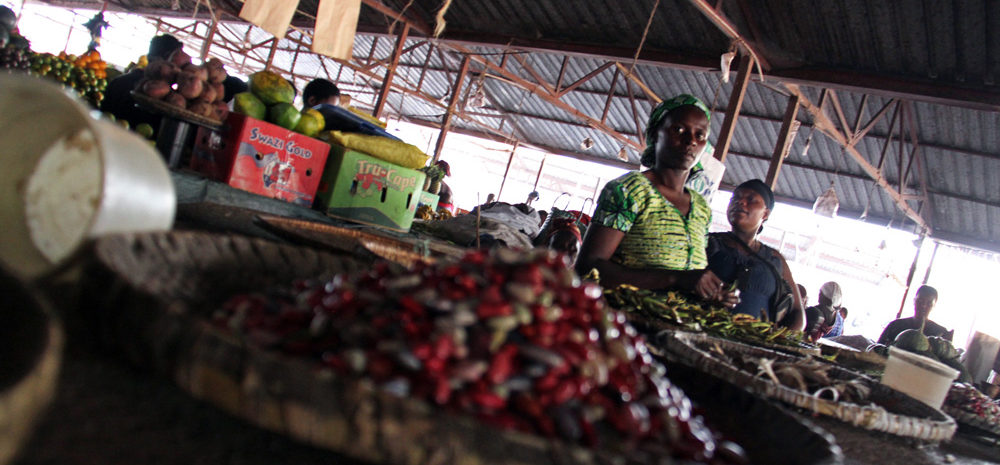Sub-Saharan Africa was facing food insecurity even before the global pandemic. In 2018, the Food and Agriculture Organization of the United Nations (FAO) reported that 239 million people in the region were undernourished; many of the countries have been experiencing chronic food crises driven by a variety of factors, including economic shocks, climate, and conflict. COVID-19 added another layer of risks and vulnerabilities.
The pandemic is disrupting agricultural value chains in Africa and beyond. This crisis is threatening food and nutrition security as well as the livelihoods of farming communities who rely on agriculture for income and sustenance.
Border closures, lockdowns and curfews that are intended to slow the spread of the disease are disrupting supply chains, restricting many people from accessing healthy nutritious food, while farmers are struggling to deliver their produce to the markets and to acquire badly needed agricultural inputs, like seeds, fertilizer, and livestock feed. These disruptions could be devastating for Africa, where farming accounts for about 60 percent of total employment.
This article presents opinions gathered through an online survey disseminated by the networks of Inclusive Business Sweden and 2SCALE in various countries of East Africa.
Based on the survey findings and follow up interviews from the field, this blog shares insights from farmers individual farmers organizations, with subsequent blogs capturing sentiments from other actors.
Access to markets and agricultural inputs
As the pandemic unravels, farmers need reliable health and safety information, access to markets, supplies of feed, seeds and fertilizers, labour and working capital as well as tailored advice for growing their crops while diversifying their incomes to increase resilience.
COVID-19-related movement restrictions hampered access to market. And in places where these restrictions were relaxed, the produce has become more expensive due to increased logistical costs. Consequently, food prices are climbing up for everyone.
A bean farmer from the Western Province of Kenya who is part of the Akites Farmers Cooperatives reports that every time she needs to transport her beans to Nairobi for sale she has to get a travel permit from the government. The permits are costly and have long processing time. Yet, in her case, the market price for beans remains the same despite high demand and higher production costs, thus, causing a reduction in the profit margins for her and other farmers in her cooperative.
Farmers also report that movement restriction drove up the labor costs with effects on production and harvesting, which is mostly done manually in Africa. Agricultural inputs are often distributed through bigger cities, like Nairobi, so restricted movements challenge restocking and create shortages on the ground.
Emerging solutions
According to the farmers who participated in the survey, various actors (local and international NGOs, national governments, and the private sector) have been providing support to mitigate some of the negative effects of the ongoing crisis. These actors organized trainings and agronomical support for farmers by means of online training modules as well as virtual monitoring of their crops.
Farmers are slowly adapting and making use of innovations brought by the digital solutions, although not without challenges. Many farmers are seeking alternative ways to reach customers, employing online platforms and WhatsApp groups that offer marketing efficiency in light of the pandemic regulations.
One example is the 2SCALE program that is now collaborating with various online platforms such as Kuza One, Access Agriculture as well as local radio stations to provide agronomical advice and support since physical trainings aren’t allowed. This programme includes mobile messaging, so farmers can receive advice on their phone, as well as by tuning in to radio stations and using web-based services.
Farmers are also organising to make bulk orders directly from manufacturers, which helps them secure input supply and ensure continued production. Some dairy farmers in Kenya started to cultivate their own soybean for animal feed, which was previously imported from Uganda. Find out more with Joseph Odero, manager of the Oyani Dairy Farmers’ Cooperative in this video:
